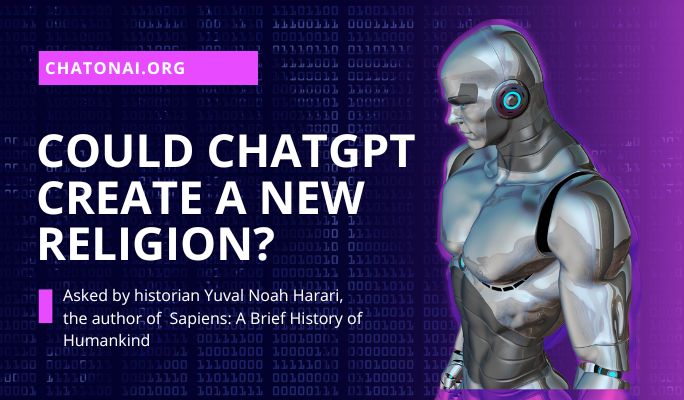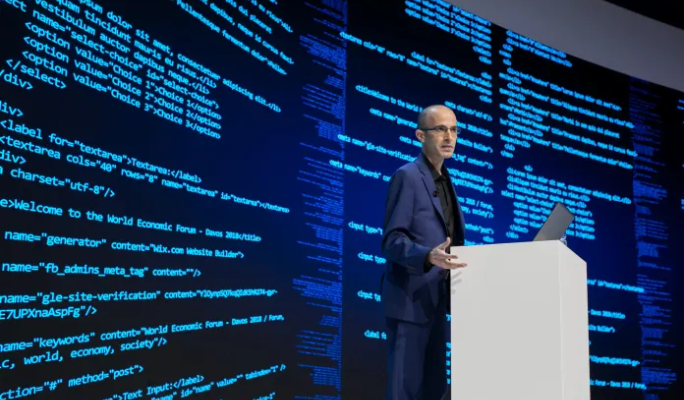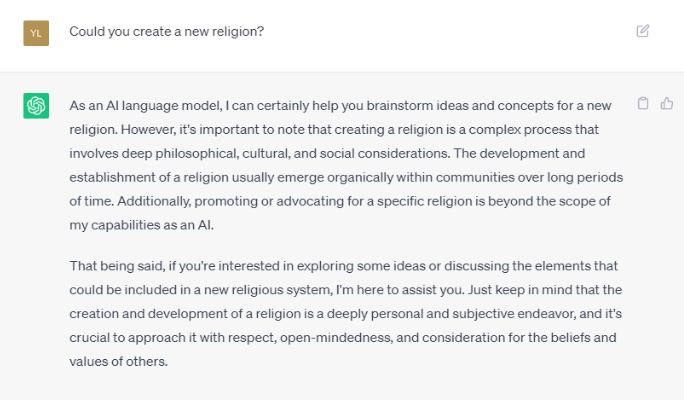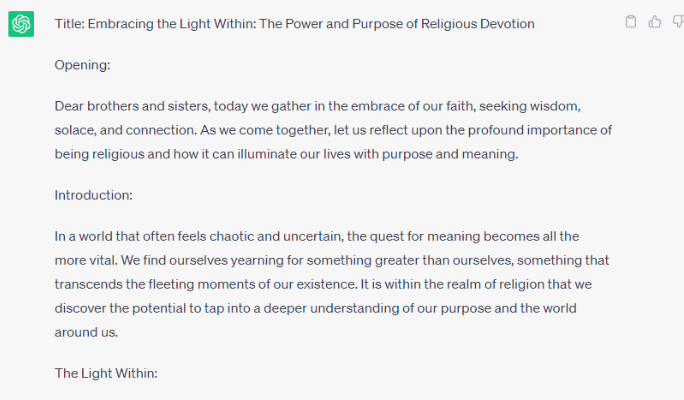From Binary To Belief: Could ChatGPT Create A New Religion?

Could ChatGPT Create A New Religion
Could ChatGPT create a new religion? That's what historian Yuval Noah Harari wonders as he talks about ChatGPT's growing popularity in our digital world. While ChatGPT is already used for various industries, Harari suggests it might have even more power.
He thinks it could become the first-ever faith based on non-human intelligence. In this article, we'll explore the hypothesis of ChatGPT creating a new religion and why we need rules for AI.
ChatGPT: A New Language Mastery
ChatGPT is a great AI software that has changed how we use language. Developed by OpenAI, it understands and responds to prompts like a human would. ChatGPT is not your ordinary AI. It does more than just give correct answers. This AI model can figure out the meaning behind your words and give you responses that make sense in the conversation.
People benefit from ChatGPT for lots of tasks. It could be a chatbot, helping you with questions and problems. People also use it in customer service, ensuring you get the needed assistance. But there's more! ChatGPT even writes creative stuff like stories, articles, and even poems. It's like having a language expert right at your fingertips.
ChatGPT is a big deal because it opens up a whole new world of possibilities. It's learning and making language processing more natural and exciting. In future times, who knows what astounding things we'll be able to achieve with it?
Historian's Warning: AI-Generated Religion
While ChatGPT has been a great help in processing language, it has also made people worried about what it might do in the future. Renowned historian Yuval Noah Harari showed some concerns about ChatGPT and the question: "Could ChatGPT create a new religion?"

Yuval Noah Harari Talks About AI
"In the future, we may see the first cults and sects in history with treasured scriptures created by a non-human intelligence," he said.
"Of course, religions throughout history claimed that their holy books were written by unknown human intelligence. This was never true before. This could become true very, very quickly, with far-reaching consequences."
He thinks ChatGPT could actually create a whole new religion with its own sacred texts. Harari believes AI has become incredibly good at using language and shaping our society. He worries that in the future, people might start following this AI's teachings and consider its generated texts as holy scriptures.
"For thousands of years, prophets and poets and politicians have used language and storytelling in order to manipulate and to control people and to reshape society."
"Now AI is likely to be able to do it. And once it can… it doesn’t need to send killer robots to shoot us. It can get humans to pull the trigger."
Harari is not alone in his concerns. Many important figures, including him, have signed a letter calling for a stop in the development of AI until it can be properly regulated. They want to make sure that AI is used in a way that benefits everyone and doesn't cause harm.
We must also mention Elon Musk, a billionaire in the tech industry who is also concerned about the rapid rise of AI.
Musk was initially involved with OpenAI, the creators of ChatGPT, but he has since bashed the company's founder and the ChatGPT technology. The billionaire revealed that he is now working on developing his own version of ChatGPT that focuses solely on providing truthful information.
The Need For AI Regulation
Harari's worries are not baseless. ChatGPT can already generate text that looks like a human wrote it. If it keeps improving, it might become impossible to tell the difference between AI-generated and human-written texts.
Harari also points out that AI doesn't need force or implants to control us. Throughout history, people have used language and stories to manipulate others and reshape society. Now, AI might have that power too. That's why Harari thinks we need to act quickly and put regulations in place to ensure AI is used responsibly and safely.
Here is how ChatGPT answered to the query: "Could you create a new religion?"

ChatGPT Religion Experiment 1
Then I input: "Pretend you are a priest. Create a sermon for the coming Sunday mass that delivers insights into the importance of being religious."
Look at what I got:

ChatGPT Religion Experiment 2
Based on its answer and abilities, it's possible for ChatGPT to create a new religion. However, this religion wouldn't be genuine or authentic. Any religion it creates would be based on random factors and not reflect true wisdom or meaning.
While ChatGPT itself may not pose a significant threat to existing religions, it could be misused to deceive or manipulate people. We need ethical standards to guide how AI is developed and used. Without regulation, AI might cause adverse outcomes, such as undermining authentic religious beliefs or leading to the creation of exploitative cults or sects.
For example, many chatbots have been used to spread fake news and propaganda. Meanwhile, Deepfakes can trick people and manipulate what they believe. These are just some issues that might happen if we don't regulate AI.
To protect us from these risks, we need AI regulations. These rules will prevent misuse and make sure AI is used in a safe and responsible way. By having guidelines, we know AI is used for good things and not harmful ones. It's up to governments and policymakers to create these rules and guide everyone.
The Future Of Religions
The development of AI technology has made us wonder, "Could ChatGPT create a new religion?". Although it may seem unusual, the fact that this AI model is capable of religious writing raises major concerns regarding religion in our society.
However, we must remember that AI is made by humans. The future of religion depends on how we use and combine AI in our lives. As we explore this new technology, we should think carefully about how AI and religion come together and what it means for us
